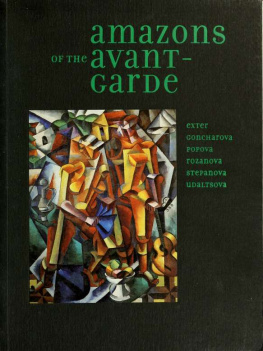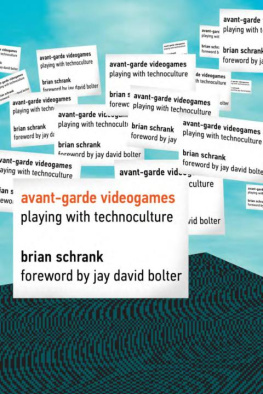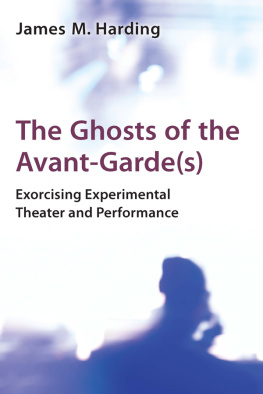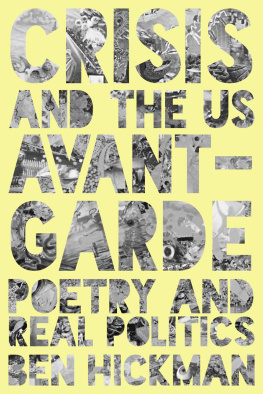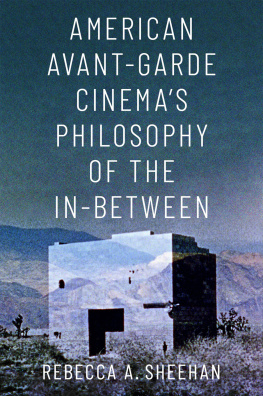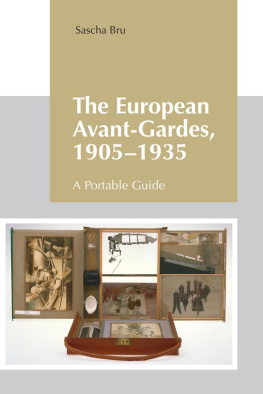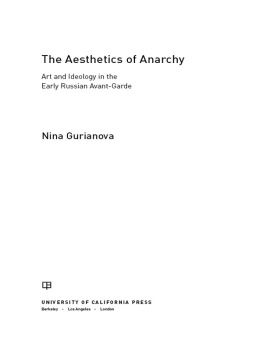Northern Illinois University Press, DeKalb 60115
2018 by Northern Illinois University Press
All rights reserved
Printed in the United States of America
27 26 25 24 23 22 21 20 19 18 1 2 3 4 5
978-0-87580-790-4 (paper)
978-1-60909-245-0 (e-book)
Book and cover design by Yuni Dorr
Publication of this book was made possible, in part, by a grant from the First Book Subvention Program of the Association for Slavic, East European, and Eurasian Studies.
Library of Congress Cataloging-in-Publication Data is available online at http://catalog.loc.gov
NOTE ON TRANSLITERATION AND ABBREVIATION IN ARCHIVAL CITATIONS
The Library of Congress system has been used for the transliteration of Russian words, excluding well-known names such as, for example, Vladimir Mayakovsky, Leon Trotsky, and Anatoly Lunacharsky where the more common spelling has been retained. The use of apostrophes to designate the Russian soft sign has been excluded in the transliteration of the names of individuals for stylistic consistency. All translations are the authors own unless otherwise noted.
f., fond (collection)
D., deloproizvodstvo (record; a volume of a fond)
op., opis (inventory)
d., dd., delo, dela (file, files); the designation d. (delo) has been used throughout the text, although some archives use e.kh., edinitsa khranenia (storage unit) instead of d. when referring to a file.
ch., chast (part)
l., ll., list, listy (folio, folios or sheet, sheets)
ob, oborot (back side of a folio)
ACKNOWLEDGMENTS
I would like to express my gratitude to the University of Western Australia, which supported my research for this book over a four-year period. In addition, various grants from the universitys Graduate Research School and School of Humanities facilitated research trips that were instrumental in this project. I was honored to be the inaugural recipient of the School of Humanities Patricia Crawford Research Award in History, and I hope that this work represents a worthy tribute to this award. My research trips to Russia were also aided by the generous support of the Open Society Foundations. I am grateful for the support of the Australian Academy of the Humanities, which enabled me to spend time at the Getty Research Institute and the Hoover Institution and to expand my thinking on Russian Futurism. I am also very grateful for funding provided through the Association for Slavic, East European and Eurasian Studies First Book Subvention Program, and the Australian Academy of the Humanities Publication Subsidy Scheme.
To paraphrase a familiar proverb, it takes a village to write a book. I am especially thankful to Mark Edele for his robust and inspiring support throughout the years of my working on this project as well as for his intellectual generosity and his direct and honest approach. I am very fortunate to have been able to turn to Jenna and Philip Mead for advice and assistance whenever I needed it. The opportunity to work with Robert Stuart, Tijana Vujoevi, Darren Jorgensen, and Kati Tonkin also profoundly influenced my thinking and writing on Russian Futurism.
The final revisions of this book were undertaken during my time as a postdoctoral fellow at the University of Tbingen. I am very grateful for the support that I received from the universitys Institute for Eastern European History and Area Studies, and in particular from Klaus Gestwa, Dietrich Beyrau, Ingrid Schierle, and Katharina Kucher. Their collegiality and hospitality made for a most memorable experience. My Tbingen conversations with Boris Kolonitskii also had a profound influence on the composition of this book.
Long and engaging discussions with Tanja Mitrovi and Biljana Puri on avant-gardism and radicalism of all types influenced my thinking more than they could know. I would like to thank Nevena Markovi-Kopil and Jovana Krsti for their continued friendship and for appearing miraculously in the middle of Moscow to save me from a thorny situation. Janko and Milica Djuri became a very special part of my life during my time in Russia, and their friendship will always remain dear to me. The unwavering support of the Burtons was a great source of strength throughout this project.
This book is dedicated to Sneana Glii and Michael Burtontwo quintessential Futurist minds. Their enthusiasm, relentless optimism, and ability to remain strong in the face of immense challenges were inspirational. I know just how fortunate I am to have Nena and Michael as my comrades in arms; this book is theirs as much as it is mine.
My love of the Russian avant-gardethe original catalyst for this bookwas first sparked during my engagement at the Peggy Guggenheim Collection in Venice. The research for this study saw me comb through the archives, libraries, and museums of Moscow, St. Petersburg, Los Angeles, and Stanford. The writing and rewriting of this material occurred in the idyllic but distant settings of Perth in Western Australia and Tbingen in Germany. Ultimately, however, this book is dedicated to my home city of Belgradethe city that taught me to be resilient, that instilled in me the strength to disregard the confines of what might seem realistic and possible, and to always pursue the things that are most important. I have no doubt that the utopian and dystopian forces that shaped the spirit and recent history of my home city drew me toward the subject matter of this research, as it is not by chance that a topic finds its writer.
INTRODUCTION
Upon entering the archives of the Shchusev State Museum of Architecture in Moscow, visitors are confronted by a peculiar model, suspended from the ceiling, of Vladimir Tatlins 1932 flying machine Letatlin. Reminiscent of the skeleton of some prehistoric bird this sleek, delicate contraption was designed to function as an aerial bicycle upon which the Soviet proletariat would soar ever higher. In its ethos, the design harked back to the principles of Russias first avant-garde movementRussian Futurism, formed in the first decade of the twentieth century with the aim of using innovative artistic methods to provoke and support the creation of a modern, dynamic, and future-oriented society. Tatlins ornithopter never took to the skies. Instead, the Letatlin (much like its creator) came to be regarded as a symbol of the intrinsically utopian nature of the Russian avant-garde, and its ostensibly misguided efforts to radically modernize human experience and the built environment through art.
The charge of utopianism has long haunted the avant-gardes. Indeed, although Russian avant-garde art in general (and Russian Futurism in particular) continues to fascinate scholars and the broader public alike with its artists capacity for innovation and the ambition and audacity of their ideas, their ventures have habitually been interpreted as a form of utopian thinking. Libraries abound with monographs and exhibition catalogues that routinely equate avant-gardism with utopianism, reproducing the notion that avant-garde artists in their creative enthusiasm operated beyond the realm of what was possible and, ultimately, exhibited scant understanding of the everyday life they were so eager to redesign. Yet a careful study of the materials held in the corridors stretching out from beneath Tatlins flying machine in the Shchusev Museum and other archives, libraries, and research centers both in Russia and abroad paints a different picture of the relationship between Russias radical artists and the political, social, and cultural environment in which they operated.



